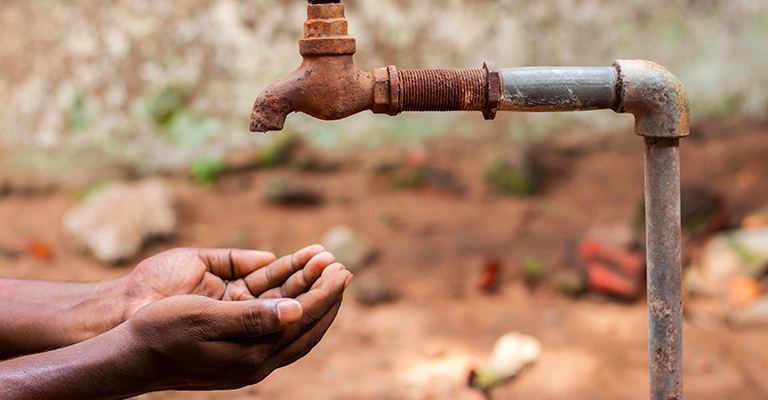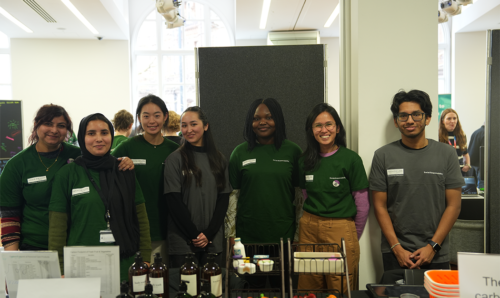The value of clean water – and working towards better access
Research impact and institutes Social responsibility Water 22nd March 2021
The theme of this year’s United Nations World Water Day (22 March) is the value of water and what it means to people.
Here in the Faculty of Science and Engineering – and across the wider University – our experts have been researching the provision of, and access to, that very basic (and essential) of human needs: clean water.
With a particular focus on India and Nepal, they are applying their findings to make positive differences in communities around the region. Follow the links below to find out more.

Water insecurity and poverty
Dr Roshan Adhikari, a Postdoctoral Research Associate at Manchester’s Global Development Institute, and Dr Tim Foster, Senior Lecturer in Water-Food Security in the Department of Mechanical, Aerospace and Civil Engineering, are investigating issues of groundwater scarcity and how to better develop irrigation planning.
Their research has highlighted huge disparities in the costs of groundwater irrigation across Southern Asia – variations that have important implications for how farmers are able to use irrigation, and how resilient they are to climate shocks.

Groundwater arsenic and health inequalities
Arsenic in groundwater poses significant dangers to the long-term health of those who consume it. David Polya, a Professor of Environment Geochemistry in the Department of Earth and Environmental Sciences and Associate Dean for Internationalisation in the Faculty, is involved in research that focuses on where arsenic can be found in northern India, how it gets there, the impact it has on people’s health, and possible solutions to the problem.
The team is currently working on quantifying the health risks that arise, both indirectly and directly, from groundwater use in India and further afield.

Using advanced materials to desalinate water
Desalination is a process whereby dissolved salt is removed from our oceans to produce fresh water – and Dr Premlal Balakrishna Pillai, Faculty Research Associate, and Rahul Nair, Professor of Materials Physics, believe advanced materials such as graphene could represent a new generation of desalination membranes, offering more efficient, cost-effective solutions.
Thanks to their unique water transport properties, advanced materials could help develop high-permeance, self-cleaning desalination and nanofiltration membranes, resulting in truly transformative technologies for water purification.

Highlighting hazards in Bihar’s drinking water
Dr Laura Richards, a Dame Kathleen Ollerenshaw Research Fellow in the Department of Earth and Environmental Sciences, is undertaking field research in Bihar, India – where she aims to identify drinking water hazards through the collection of groundwater samples.
Using these samples, taken from both private and government wells, the research team is able to study the distribution of dangerous naturally-occurring contaminants in groundwater – notably arsenic and uranium.
In Patna, the capital of Bihar, a team is also able to study groundwater in another context: a rapidly developing city impacted by rapid urbanisation.
Images: Shutterstock
Be sure to subscribe on our homepage to keep up to date with all the latest posts from The Hub.
climate changeEarth and Environmental SciencesgrapheneMaterialsMechanical Aerospace and Civil Engineering




